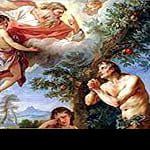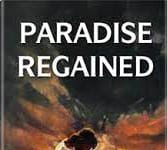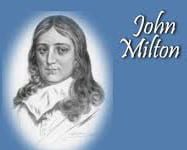Theme of Death in Whitman’s Poetry
Theme of Death in Whitman’s Poetry
Theme of Death in Whitman’s Poetry
‘Death’ means the end of life. To say explicitly that Death is the final cessation of vital function in an organism. On the theme of death, many poets of the world have written many poems. But in America once there were two great poets: one was Emily Dickinson and the other was Walt Whitman, who had written a good deal of poetry on the theme of death. In the poems dealing with the theme of death, Walt Whitman took death not as an end of life, but as a beginning of new life not on this earth but somewhere else. In other words, Death for him was a door or a means through which the soul of a being goes on to join the Divine Soul in heaven. Thus to Whitman, Death was the gateway to achieving immortality. He had written some elegies, the theme of which was death, but in those elegies, he never cursed death but glorified it though there was a touch of pathos and gloominess.
There are many references to death in his great poem entitled ‘Song of Myself’. In section 6 of the poem, he says that there is no death of any soul—it only journeys to another world where the soul gets a new life and live their happily. He says:
”And what do you think has become of the woman and children?
They are alive and well somewhere
The smallest sprout shows there is really no death
And if ever there was, it leads forward life.”
In section 7 of the same poem, the poet says that who dies is luckier as one who takes birth.
”Has anyone supposed it lucky to be born
I hasten to inform him or her,
It is just as lucky to die and I know it.”
In section 49 of the same poem, he defies death and wants to imply that he is never afraid of death, as—
”And as to you, death and you bitter hug
of mortality, it is idle to alarm me.”
The poet never suspects death. He thinks that death is good to everybody as it leads to immortality. He says:
”Do you suspect death. If I were to suspect death I should die now.
Do you think I could walk pleasantly
and well-suited I walk,
Whither I walk I cannot define
But I know it is good.”
The poet thinks in the poem ‘To Think of Time’ that nothing of this universe meets a fatal end, but only changes the physical form and achieves immortality. He says:
”I swear I think there is nothing but immortality!
That the exquisite scheme for it, and
the nebulous float is for it, and the co-herring is for it!
All preparation is for it—and identity
is for it—and life and materials are altogether for it.”
The poet rightly thinks that it is the spiritual journey from this world to another world where the human soul unites with the Divine Soul. In one poem he says:
”And I will show that whatever happens to
anybody, it may be turned to beautiful
results—and I will show that nothing
happens more beautiful than death.”
There are some elegies written by him as- ‘Out of the Cradle Endlessly Rocking’, ‘When Lilacs Last in the Door-yard Bloomed’, ‘O Captain, O Captain‘, ‘Come up from the Fields Father’, ‘Dirge for Two Veterans’ and some others—where he has lamented over death. But the lamentation does not mean that he curses death, instead, he consoles that death has led the person to heaven to live a better life there.
In many poems written in an elegiac tone, the poet has used many symbols to represent death, such as—lilies, lilac, stars, roses, thrush, the sun, the moon etc.
From the above analysis, we come to know that Walt Whitman was a death-conscious poet, who took death, not as the ending of life but as a means of achieving immortality. 0 0 0
Theme of Death in Whitman’s Poetry
N.B. The article ‘Theme of Death in Whitman’s Poetry’ originally belongs to the book ‘Walt Whitman’s Poetry A Thematic Study‘ by Menonim Mennimus.











